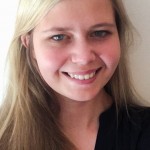 Social and Behavioral Sciences
Social and Behavioral Sciences
Methodology and Statistics
Tilburg University
Personal webpage Marlyne Meijerink
On 22 September 2023 Marlyne Meijerink defended her thesis: Who, when, and how long? Time-sensitive social network modeling using relational event data at the university of Tilburg.
Confirmatory methods for time-sensitive social processes
The recently proposed Relational Event Model (REM; Butts, 2008) yields a promising new approach for modeling social interaction data by properly incorporating the timing and ordering of events. At this stage, however, the REM is still in a preliminary stage of development, and therefore, our understanding of time-sensitive social processes remains limited. The general objective of this and other related projects is to build upon the REM framework to develop a general Bayesian statistical framework for analyzing social interaction data and to test and build theories on time-sensitive social interaction processes. Within this general objective, this project is devoted to parameter estimation and hypothesis testing in the Bayesian relational event model (BREM). (1) Shrinkage priors will be developed for the BREM to fit models with many covariates where non-existing effects are shrunk towards zero while true large effects are maintained. (2) Bayes factors will be developed to test order hypotheses about the relative importance of dynamic network effects. (3) A two-step procedure will be developed to assess the network dynamics on outcome variables (e.g., success rate of working projects or student grades in classrooms). First the effects of network dynamics in different teams will be estimated, and second, the outcome variables of interest (e.g., team performance) will be regressed to the estimated effects. (4) The new methods will be applied to the relational event histories with 800,000 interactions between students and teachers in 650 classrooms and the event history of 80,000 information sharing events between employees in organizations to learn about the relative importance of drivers of interaction structures, and to investigate how network drivers influence team performance and student grades.
Supervisors
Prof. dr. R.T.A.J. Leenders, dr. ir. J. Mulder
Financed by
NWO Vidi grant J. Mulder 2017
Period
September 2018 – September 2023
